Sober October began in the U.K as a fundraising campaign to support people living with cancer. In addition to being a way to support charitable means, the challenge encouraged participants to think about their relationship with alcohol.
Over the years, this challenge has spread across the world and similar to the more well-known, “dry January” the rule is simple: give up alcohol for the month of October. Though some participate in this month of abstinence for charity, many decide to participate for more personal reasons.
RELATED: Here’s What Happens To Your Body If You Drink Alcohol Every Day
Taking a break from alcohol is always a positive idea, but especially after the last 18 months, people may need a break now more than ever. The American Psychological Association’s survey of adults in the U.S. that was conducted in February 2021 found that nearly 1 in 4 adults (23%) reported drinking more alcohol to cope with their stress.
What are some potential health benefits of taking a break from alcohol?
Taking a month-long hiatus from booze can do wonders for your health. As the temperature drops and cold/flu season lurks, abstaining from alcohol may improve your immune system. If sleep is an issue for you, swapping your evening drink for a cup of herbal tea may drastically improve the quality of your sleep. Of course, another positive of sober October is a potential release of a few pounds. As someone who has not had a drink in over four years, I personally can attest to improved sleep, mood, and overall vitality.
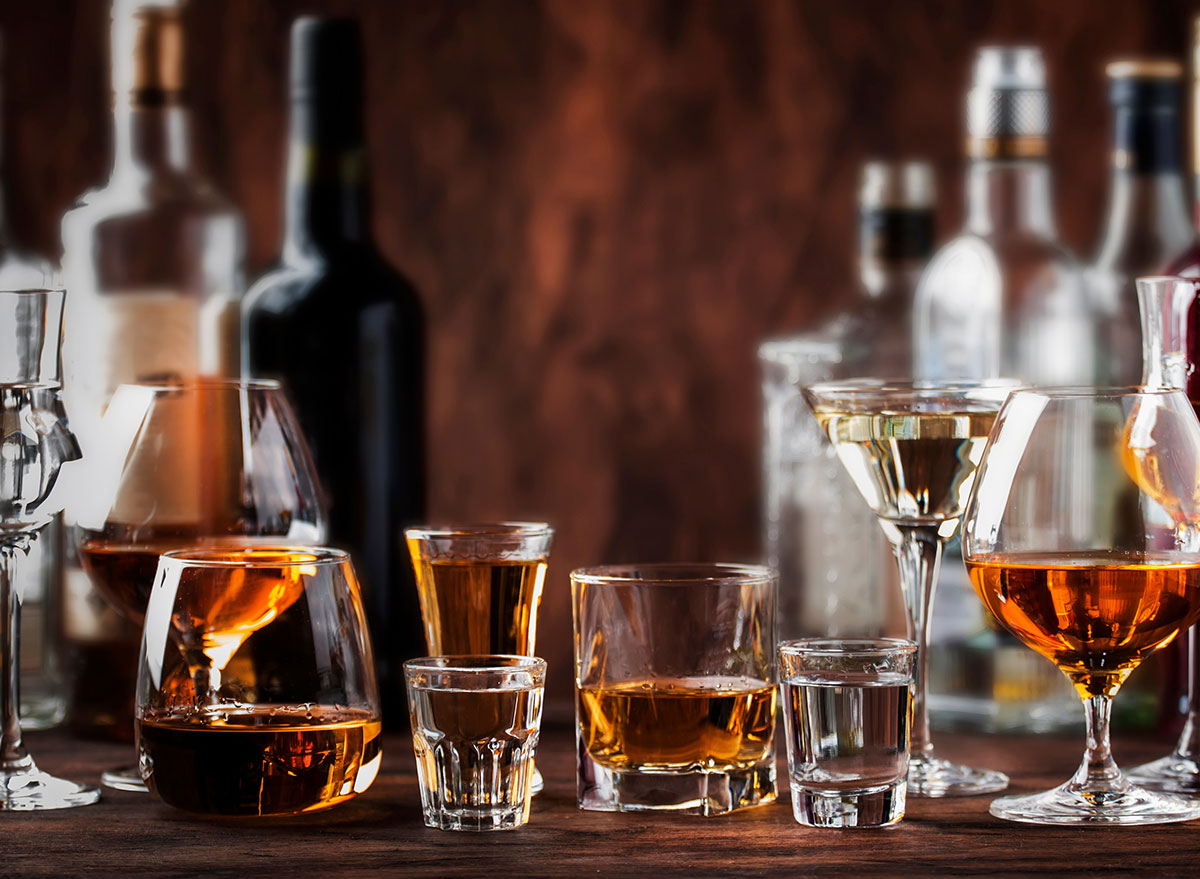
The benefits of sobering up for one month are incredible and yet, there is one side effect that might not get enough airtime: sugar cravings. Reasons for increased sugar cravings are yet to be completely understood and many of the causes that are currently accepted are related to those with diagnosed alcohol use disorders. Depending on how much you drink, your cravings for sugar in the first week might be related to withdrawal and blood sugar drops.
What are some other ways alcohol can cause sugar cravings to increase?
Sugar cravings can also increase after binge drinking episodes. When high amounts of alcohol are consumed at once, it can interfere with the normal processing of glucose in the body which can lead to low blood sugar levels. According to the CDC, one in six U.S. adults binge drinks about four times a month, consuming about seven drinks per binge. Anecdotally, it is common for individuals to consume more alcohol than normal before embarking on a month of sobriety, however, the extra cocktails may set you up for a rough ride of cravings.
If you feel like sugar hankerings during periods of alcohol abstinence are all in your head, you may be right. Alcohol consumption lights up the pleasure center of the brain and releases dopamine, the reward neurotransmitter. When the signal for dopamine release is removed (alcohol), you will likely look for something else to take its place and that placeholder can be sugar. Sugary foods, or foods that break down into sugar quickly, likely produce the same effect as alcohol, so after a long, stressful day, it makes sense that you might crave a cupcake if your glass of wine is no longer an option.
In addition to the chemicals that drive sugar cravings, one last reason for an increased desire for sugar is a commonly held belief of using food as a reward. I hear this statement often with clients, “I’m not drinking so I deserve to eat ice cream,” or “I’m not drinking so I can have the cookie.” This slippery road of reward-based thinking can lead to sugar-fueled habits that take away from the health benefits of not drinking.
The good news is that you do not have to white-knuckle your sweet desires and rely solely on willpower. Here are five, sweet swaps you can make that will keep your overall sugar intake low while still satisfying cravings. For additional tips, be sure to check out 9 Best Low Sugar Ice Creams, According to Dietitians.
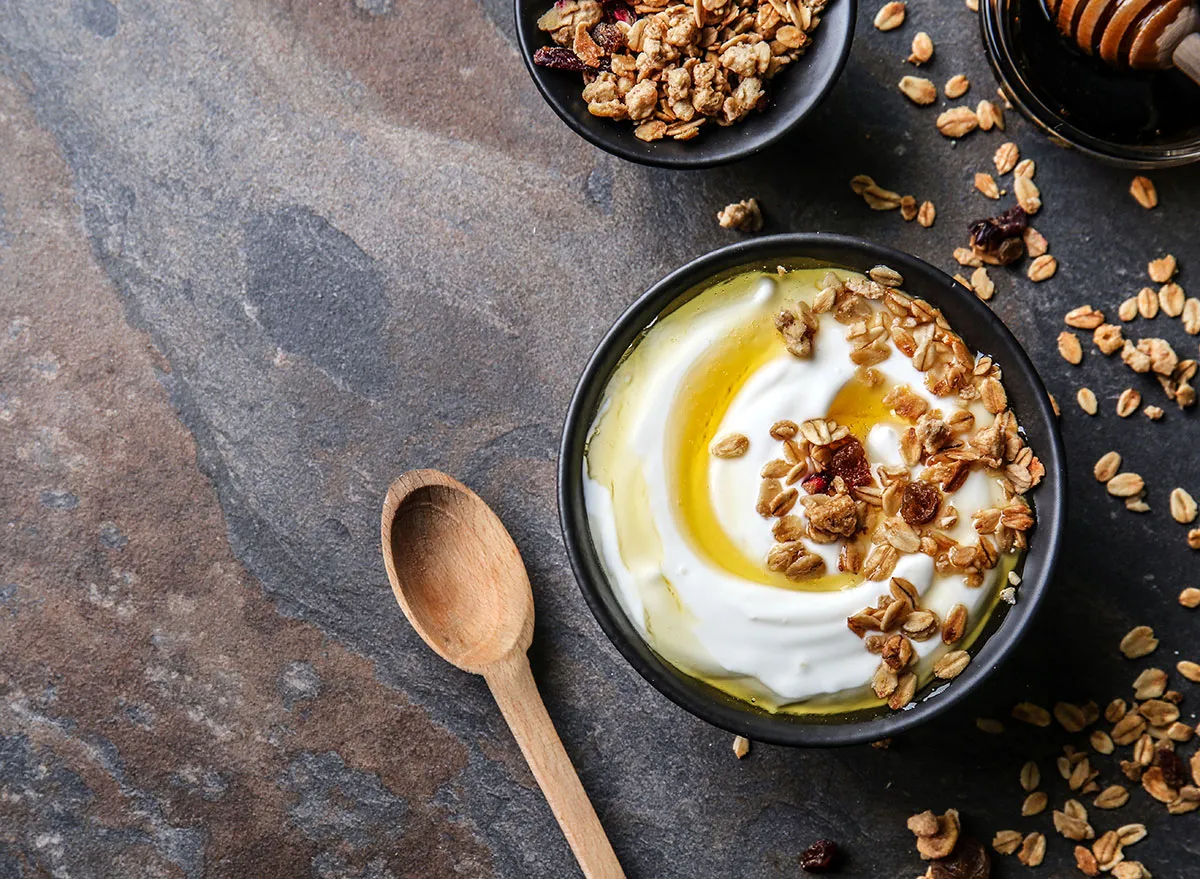
Your classic pint of ice cream can contain upwards of 30 grams of added sugar per serving, which is more than the daily recommended amount of added sugar in just one bowl of ice cream! Instead of sending your blood sugar on a wild roller coaster, try making your own creamy treat. Opt for full-fat plain Greek yogurt, add a teaspoon of honey, and then toss in some cacao nibs and frozen dark cherries.
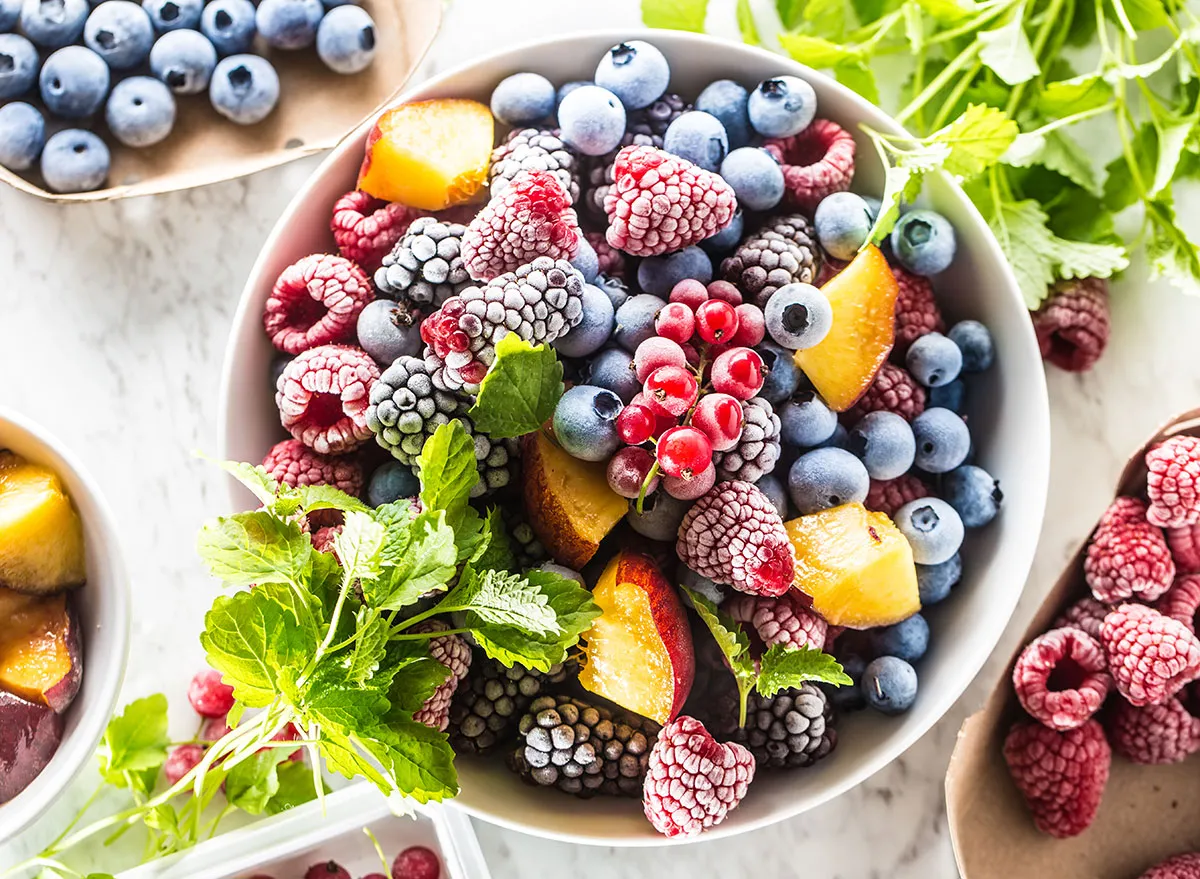
Sugar, water, and flavor on a stick? No thank you! Swap those pops for the real deal—frozen fruit. You can either buy fresh fruit and freeze it yourself, or save time and money by purchasing already frozen fruit. Just as nutritious as when it’s in its fresh state, frozen fruit makes for a great snack, and will satisfy your cravings for something sweet (and cold) while nourishing your body with fiber, vitamins, and minerals.
Don’t miss Eating This Fruit Daily Slashes Your Risk of Heart Disease, New Study Finds!
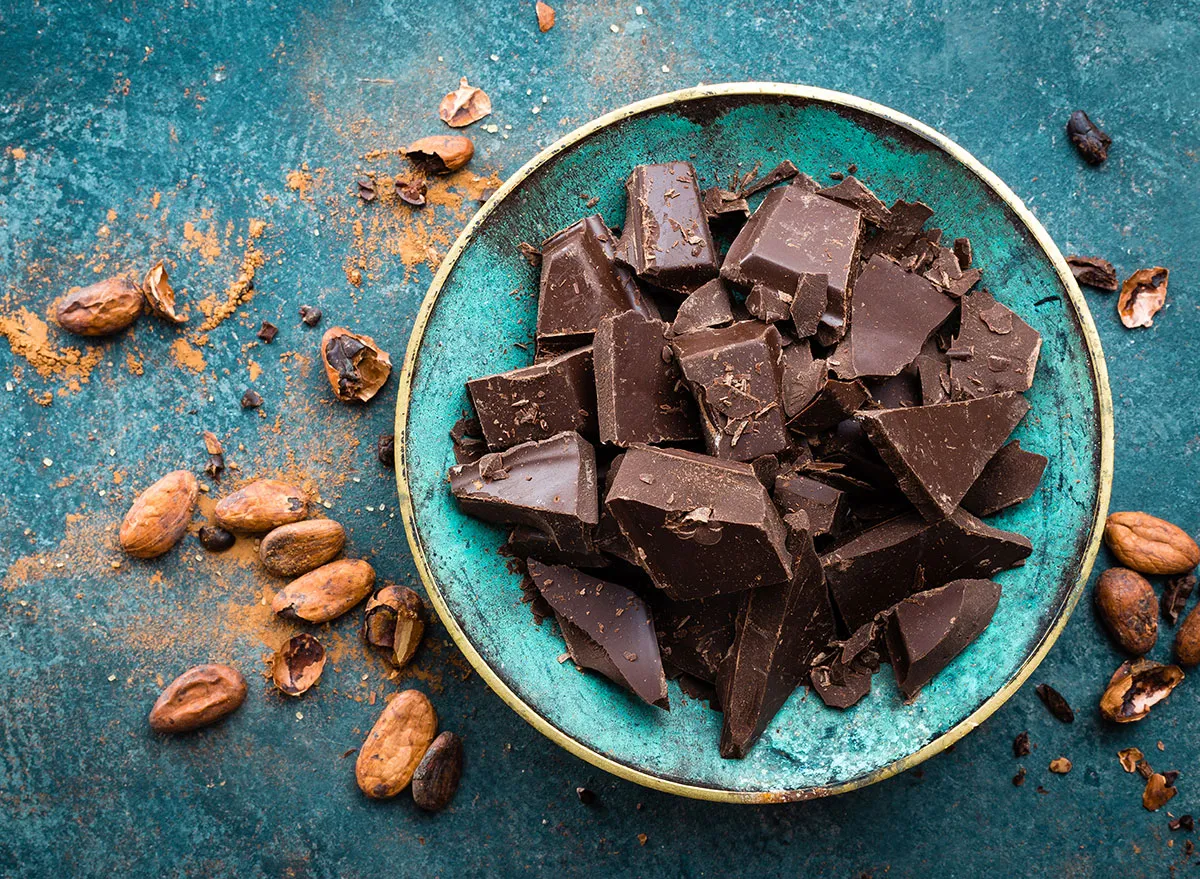
Milk chocolate may be tasty but it often has double the amount of sugar as dark, but barely any nutritional benefits. Look for chocolate bars that are at least 70% cacao (the higher the percentage, the greater the nutritional value). Enjoying dark chocolate will not only calm those cravings, but will also provide you with antioxidants, magnesium, zinc, and iron.
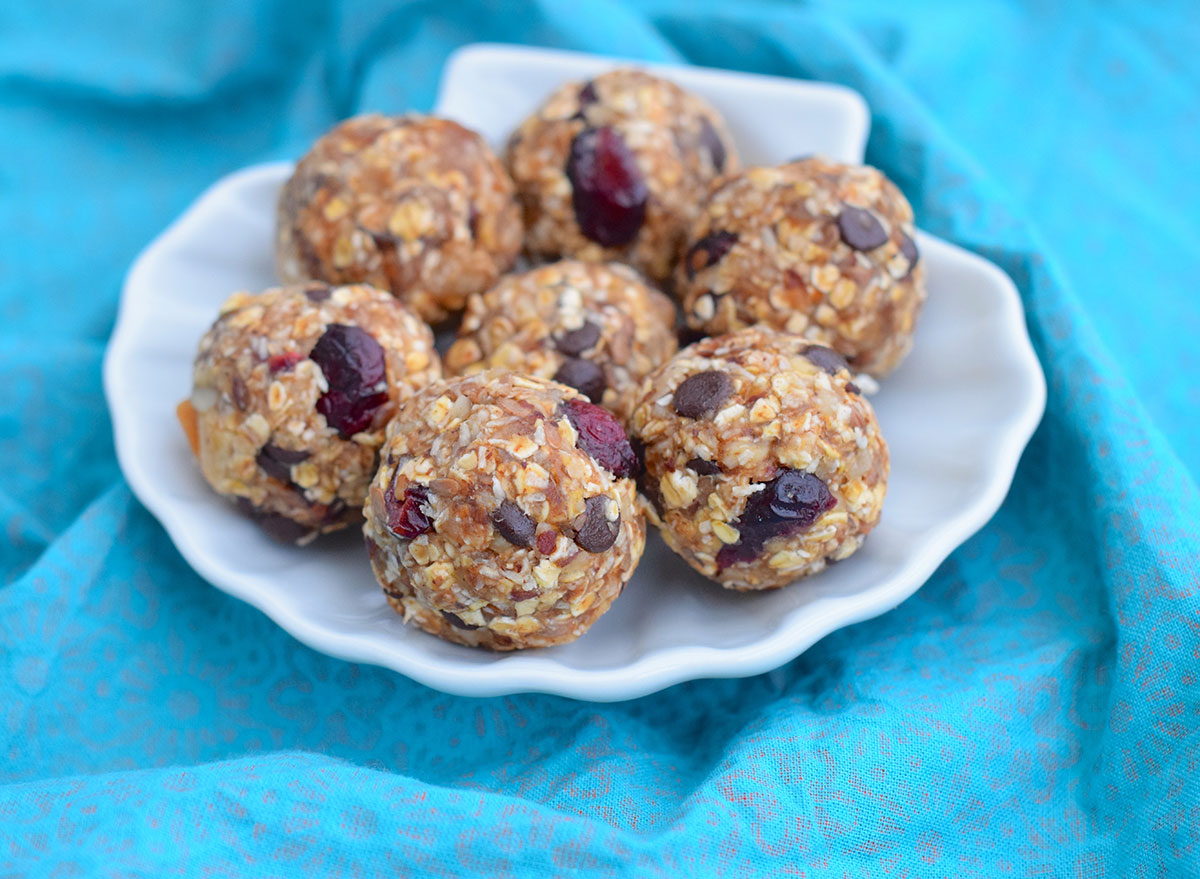
Energy balls are an incredible way to pack a ton of nutrition (and sweetness) into one single bite. Craving a peanut butter cookie? Try making a five-ingredient energy ball with rolled oats, peanut butter, cacao, a touch of honey, and sea salt. Energy bites are a simple way to make something sweet and nourishing without cooking or baking.
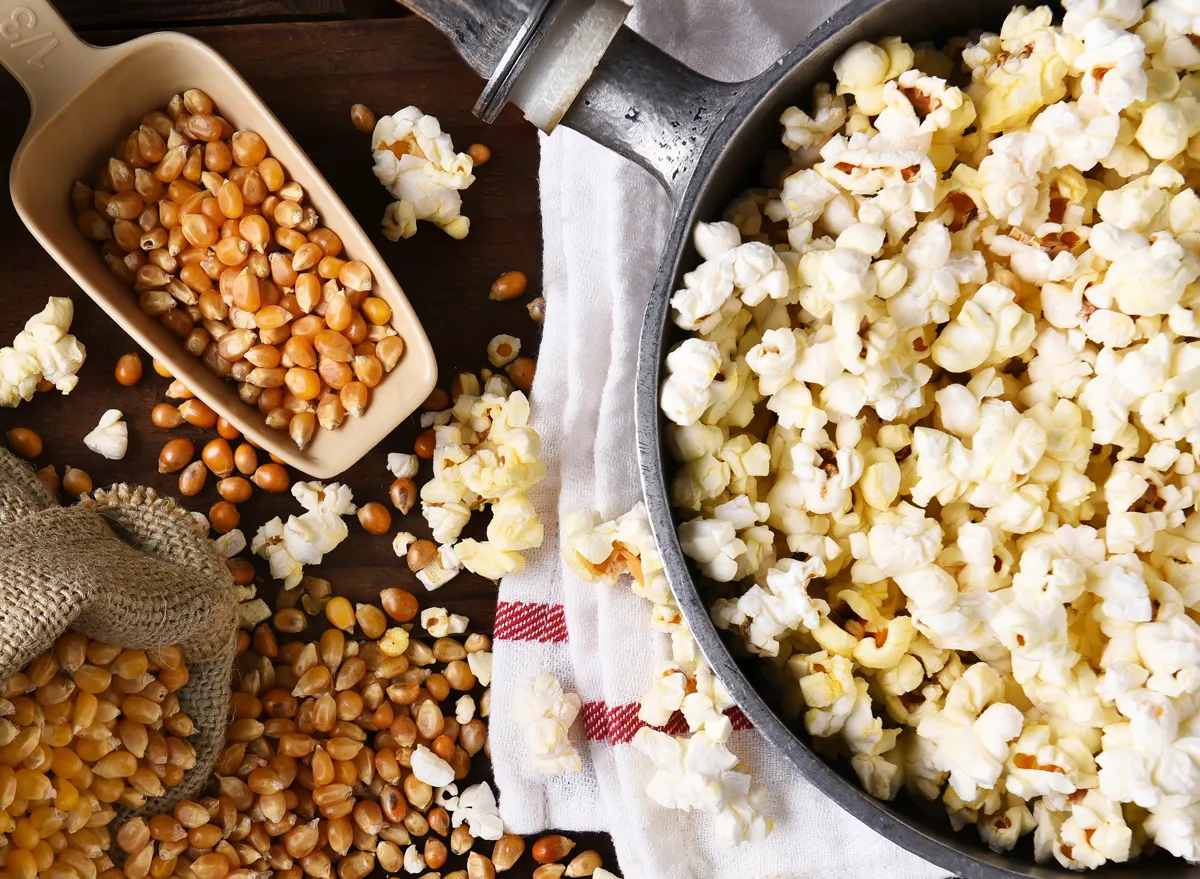
Say goodbye to nutrient-void snacks, such as chocolate-covered pretzels that leave you feeling puffy and irritated, and say hello to its healthier swap: popcorn and chocolate. I know, how is this any healthier? Well, organic popcorn is a rich source of fiber, and dark chocolate packs a punch of minerals and antioxidants. Pop your own popcorn in an anti-inflammatory oil, like avocado, add a pinch of salt, and mix in your favorite dark chocolate.
If you’re interested in more expert-backed tips and recommendations Be sure to sign up for our newsletter!






